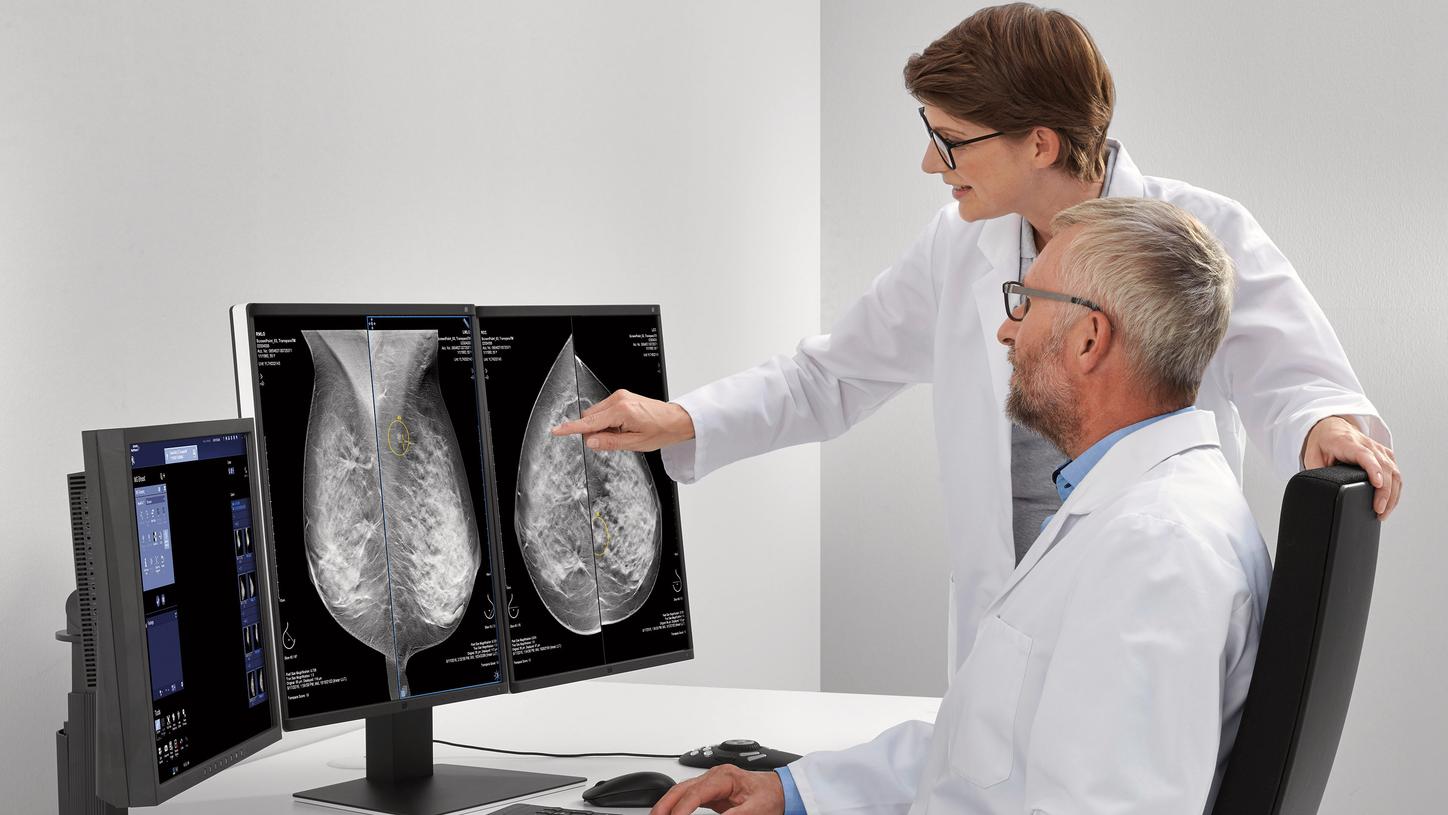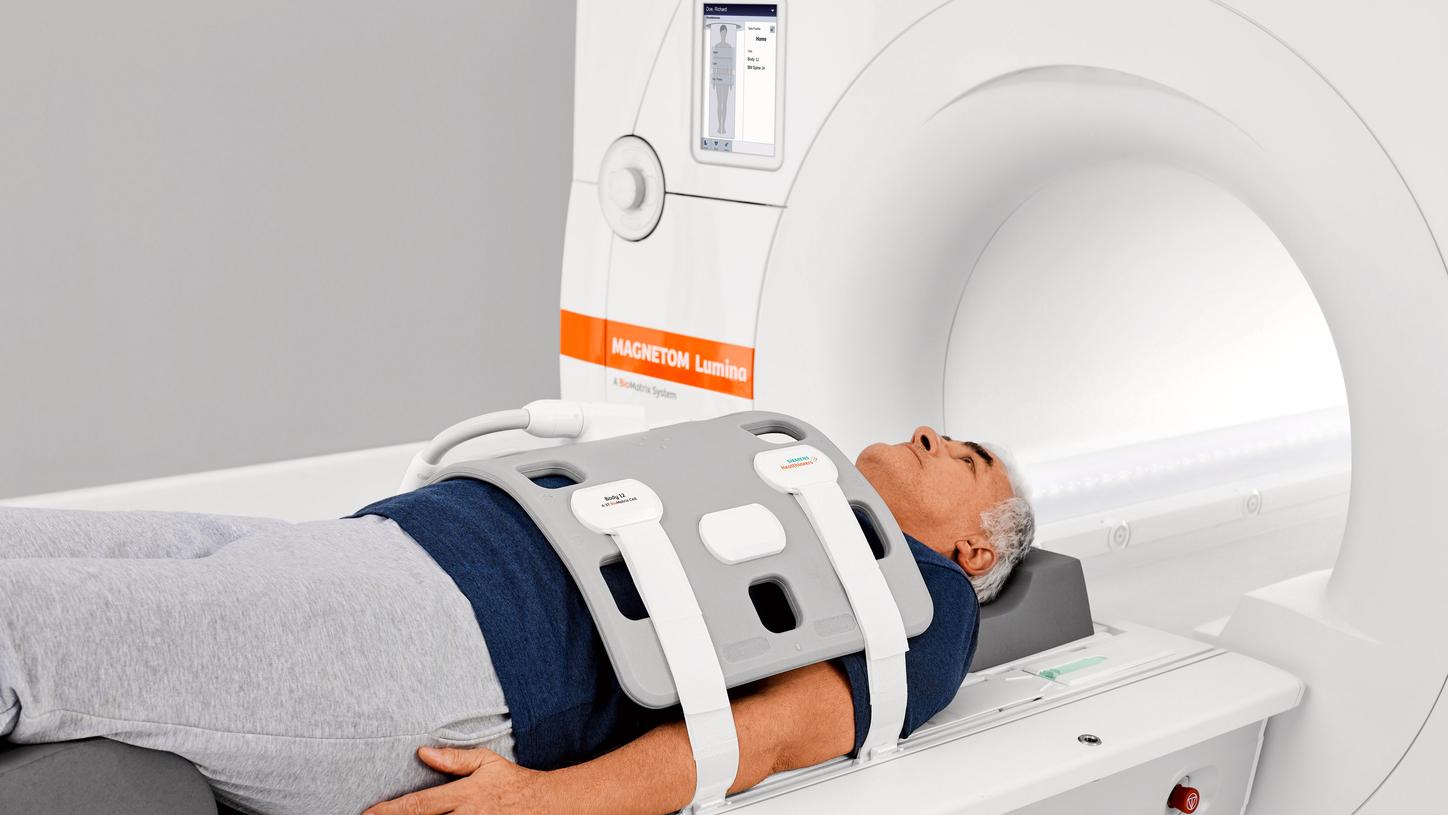Under the motto “Tomorrow’s Radiology Today” the 104th annual meeting of the Radiology Society of North America opened its doors on 25th of November in Chicago. We really enjoyed sharing our latest innovations with you, and we’d like to thank you for the time you took to visit us. If you didn’t have the chance to attend RSNA in person, here’s a round-up of the Siemens Healthineers highlights.
More personalized, productive, and patient-friendly MRI
Personalized MRI examinations are only possible if we embrace the different physiologies and anatomies of patients. So instead of expecting patients to adjust to the technology, BioMatrix Technology automatically adjusts to the individual patient. Now extended to the 70-cm bore product segment with the new MAGNETOM Lumina1 (3 Tesla) and MAGNETOM Altea (1.5 Tesla), BioMatrix Technology supports standardization and faster exam workflows. Scan results are highly reproducible, enhanced by the integration of artificial intelligence. Moreover, in the 60-cm bore product segment, we have introduced BioMatrix to our MAGNETOM Amira2. This will contribute to greater consistency in scan results, support financial sustainability through productivity boosting technologies, and expand clinical applications.
Anxiety during MRI exams can result in motion artifacts or even mean that the scan process has to be stopped. With the revolutionary in-bore infotainment system InnovisionTM, patients can now watch their favorite show during the exam to reduce anxiety and improve patient satisfaction.3,4
Furthermore, with our new Turbo Suite it is now possible to reduce overall scan times by up to 50% with no compromise in image quality. This can help increase patient throughput and scanner productivity while lowering the cost per scan. And patients benefit from shorter waiting and examination times. Turbo Suite comprises customized acceleration applications tailored to clinical questions in musculoskeletal, spine, neurovascular, abdomen, breast, and cardiac imaging.

More accessible, easy-to-use, and patient-oriented X-ray imaging
For many healthcare providers, radiography is a core component of their clinical services. As a service that interfaces daily with referring physicians, it is essential to the success of their facilities. Many patients, in turn, first come into contact with a hospital when they need an X-ray. An institution’s reputation can be greatly enhanced by offering digital X-rays and efficient access to high-quality clinical images, with the associated improvements to patient care.
Multix Impact5, our innovative new floor-mounted radiography system, responds to these needs. Multix Impact creates a positive patient experience with its modern, welcoming design. The elevating table and free-floating flat tabletop make it easier and less painful for the patient to access the system, which is especially important for injured or immobile patients. With the new system, technicians can remain at the patient’s side for most of the time, because all examination parameters can be set directly via touchscreen.
The optical camera allows technicians to monitor and correct patient positioning from the control room. This can reduce the number of retakes necessary and so reduce the dose per image. Multix Impact also offers an intuitive user interface and visual organ program selection. Both features enable technicians to work faster and with more confidence. With the preconfigured organ programs, imaging parameters and the postprocessing settings are adjusted automatically for each examination. This minimizes errors, reduces dose, and accelerates workflows in the daily routine. Fast image-flavor adjustment also helps deliver consistent, high-quality output. Furthermore, by delivering examination results on-time and in high-quality the radiologist confirms his standing as a reliable partner for referring physicians.
Boosting patient safety in mobile X-ray imaging
In addition, with the MOBILETT Elara Max6 we are setting new standards in mobile X-ray imaging which is particularly important for patients who cannot move and go to a radiology department. The easy-to-clean system surfaces with an antimicrobial coating reduce the risk of hospital acquired infections. A comprehensive IT security concept protects sensitive patient data and the secure integration of MOBILETT Elara Max into the hospital’s IT environment provides access to all relevant data at any time. Thanks to the smooth maneuverability and flexible positioning of the X-ray arm, the system facilitates easy access to the patient and optimizes workflows in radiology, thus increasing efficiency. Through its consistently high image quality, it provides diagnostic confidence directly at the patient’s bedside.

Automated analysis of entire chest CT scans with AI
In radiology, examinations of the chest, a region containing multiple organs, are challenging because the images include a wide variety of information. Radiologists mainly assess images according to the primary indication, or suspected condition, that made a CT scan necessary. The algorithms in our first intelligent software assistant AI-Rad Companion Chest CT7 pays equal attention to all areas of the chest and can mark abnormalities in places that the radiologist might not consider so closely. The software assistant generates standardized, reproducible, and quantitative reports based on AI-supported analysis. AI-Rad Companion Chest CT currently supports a variety of tasks, such as identifying lung lesions. It is the first application based on the new AI-Rad Companion platform.

More flexible workforce management with remote scanning assistance
Many healthcare providers suffer from a shortage of staff or bottlenecks in operations. Not all hospital or practice locations will have the appropriate experts on hand to scan patients with complex medical questions. The new syngo Virtual Cockpit8 can help in cases of personnel shortages and improve productivity. Medical staff can use this software solution to connect remotely to scanner workplaces and help colleagues at different locations, especially where more sophisticated examinations are required. With the ability to deploy experienced technologists across multiple locations, healthcare providers can transform care delivery and achieve a higher level of standardization for more accurate diagnoses.

Reading software with AI-based decision support enables faster results in mammography
AI can also help make physicians’ work much easier, particularly in cancer screening. Numerous mammograms are performed every day to screen for breast cancer. This means that radiologists have to interpret several hundred images a day accurately and under time pressure. Tomosynthesis, which takes 3D images of the breast, is being used increasingly in screening and therefore adds to the number of images to be read. With the new version of syngo.Breast Care9, we can now offer radiologists interactive clinical decision support that makes reading mammography images both faster and more accurate.






